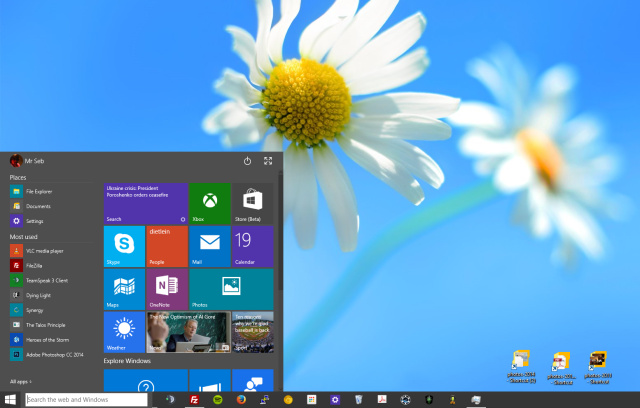
Early yesterday morning, Microsoft's Terry Myerson surprised everyone—including, I think, Microsoft PR—by announcing that everyone would get a free upgrade to Windows 10, even users with pirated/non-genuine licenses. There was then a fairly long pause while Microsoft PR prepared a response.
First, a Microsoft spokesperson confirmed with ZDNet that, "the plan to allow free upgrades for non-genuine copies of Windows applies to all markets" worldwide, not just China. Then, early this morning—more than 24 hours after the original Reuters story went live—Microsoft PR sent out another statement. Here it is in full:
The consumer free upgrade offer for Windows 10 applies to qualified new and existing devices running Windows 7, Windows 8.1, and Windows Phone 8.1. Some editions are excluded from the consumer free upgrade—including Windows 7 Enterprise, Windows 8/8.1 Enterprise, and Windows RT/RT 8.1. Active Software Assurance customers in volume licensing have the benefit to upgrade to other Windows 10 enterprise offerings.
We have always been committed to ensuring that customers have the best Windows experience possible. With Windows 10, although non-Genuine PCs may be able to upgrade to Windows 10, the upgrade will not change the genuine state of the license. Non-Genuine Windows is not published by Microsoft. It is not properly licensed, or supported by Microsoft or a trusted partner. If a device was considered non-genuine or mislicensed prior to the upgrade, that device will continue to be considered non-genuine or mislicensed after the upgrade. According to industry experts, use of pirated software, including Non-Genuine Windows, results in a higher risk of malware, fraud (identity theft, credit card theft, etc), public exposure of your personal information, and a higher risk for poor performance or feature malfunctions.
That statement had one very confusing sentence: "If a device was considered non-genuine or mislicensed prior to the upgrade, that device will continue to be considered non-genuine or mislicensed after the upgrade." We reached out to Microsoft for clarification, to find out what it actually means to have a non-genuine copy of Windows 10. "We don’t have anything further to share outside of the statement at the moment."
Where does that leave us? Clearly, if you're running a pirated version of Windows 7 or 8.1, you will get a free upgrade to Windows 10—but it will still be considered "non-genuine or mislicensed." Does this mean that you'll get a nag screen every time you boot up? Does it mean that you can only use your PC for a few weeks before it locks you out and forces you to buy a license?
Perhaps more worryingly, will non-genuine Windows 10 users be allowed on the "Windows as a Service" regular update train? The whole point of giving away free Windows 10 upgrades is that Microsoft needs to get everyone onto a single, regularly updated platform. Giving pirates a free upgrade to Windows 10, but then locking them out of the update process, would be a very puzzling move. Microsoft has withheld updates from non-genuine users in the past, though, so there is some precedent.
One possible reason for Microsoft's murky messaging is corporate licensing. For a home user, no one will ever know that you don't have a genuine copy of Windows 10—but if you're a company or institution and you get audited or raided, then a bunch of non-genuine licenses could be a problem. If you're a small or medium business with PCs running Windows 7 or 8.1 Pro, then maybe Microsoft wants to ensure that you stay genuine.
Still, until we get more clarification from Microsoft, we should remain cautious about the promise of a free upgrade to Windows 10 and an armistice for pirates. We would hope that non-genuine copies of Windows 10 still receive updates and security patches, but it's dangerous to make that assumption.
reader comments
205